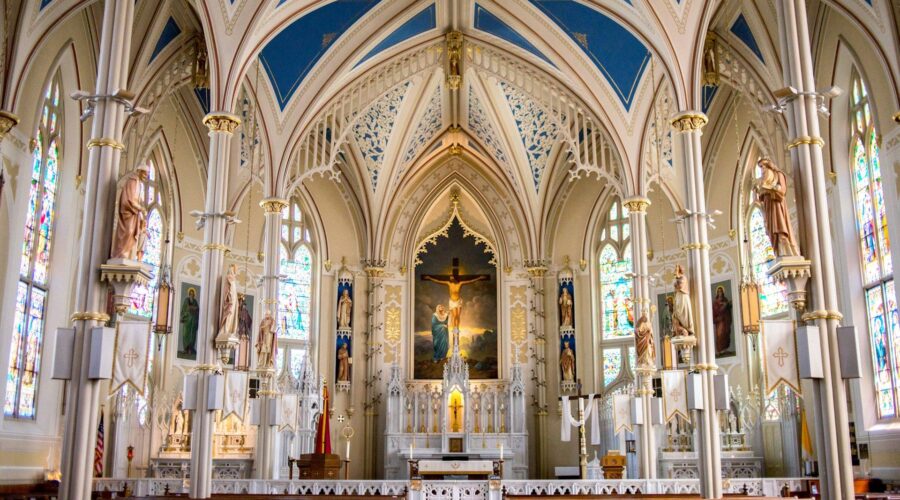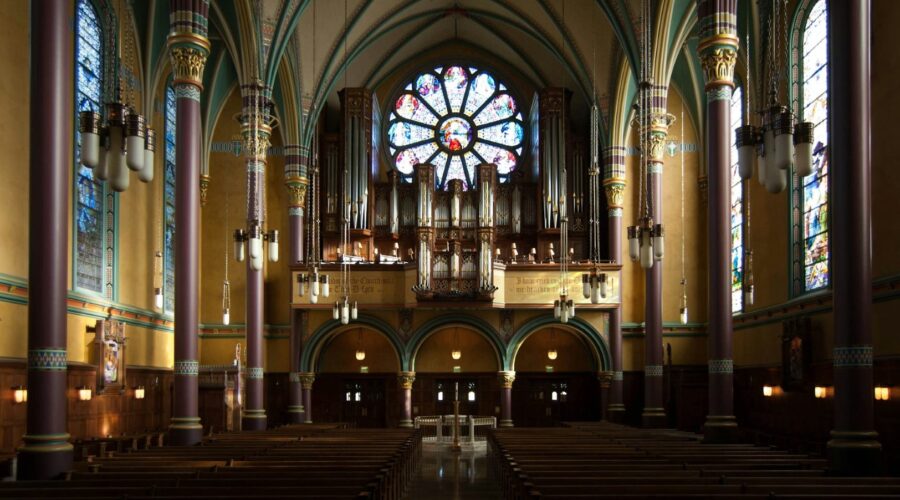Your cart is currently empty!
Blog

Unlocking the Treasures of Bible Study for Women
“`html
Why Engage in Bible Study?
For women seeking spiritual nourishment, Bible study offers a transformative journey of growth and empowerment.
- Deepen your connection with God: Explore the divine truths and principles that guide your faith.
- Enhance your understanding: Gain insights into the historical, cultural, and spiritual context of Scripture.
- Find hope and guidance: Discover comfort, wisdom, and inspiration for daily living.
- Empower yourself spiritually: Develop a strong foundation in biblical knowledge, nurturing your faith and confidence in God.
Choosing a Bible Study Method
Tailor your Bible study to your learning style and goals:
Inductive Study
- Observe and analyze the text, identifying key words, phrases, and themes.
- Interpret the meaning through careful examination and cross-referencing.
- Apply the insights to your own life and faith journey.
Deductive Study
- Begin with a specific topic or doctrine.
- Search Scripture for verses related to the topic, assembling all relevant passages.
- Synthesize the findings to develop a comprehensive understanding.
Finding a Bible Study Group
Connect with fellow women through a structured group experience:
- Church and local organizations: Many churches and community groups offer women’s Bible studies.
- Online communities: Join online forums and virtual Bible studies to connect with women from various backgrounds.
- Personal initiatives: Start a study group with friends or family members who share your interest in Scripture.
Developing a Personal Study Plan
Establish a consistent practice for personal Bible study:
- Choose a specific time and place: Designate a quiet and distraction-free environment for your study.
- Set realistic goals: Start with a manageable amount of time, gradually increasing it as your commitment grows.
- Use study tools: Utilize resources such as Bible commentaries, dictionaries, and concordances to enhance your understanding.
Effective Bible Study Tips
Maximize your Bible study experience with these techniques:
- Pray before and after studying: Seek God’s guidance and understanding.
- Read the passage multiple times: Note keywords, phrases, and any unclear concepts.
- Use a highlighter or notebook: Mark important verses and make notes for later reflection.
- Cross-reference verses: Consult other passages to gain a broader perspective.
- Apply the knowledge to your life: Consider how the insights impact your beliefs, values, and actions.
Building a Strong Spiritual Foundation
Through regular Bible study, women can cultivate:
- A deeper understanding of God’s character and nature
- Increased confidence in their faith
- Wisdom and guidance for daily decision-making
- A sense of belonging and community
- A life transformed by the power of Scripture
Recommended Resources
- Bible Gateway
- Blue Letter Bible
- Bible Study Tools
- Christianity Today Women’s Devotions
- Youth for Christ Women’s Devotions
Embark on a transformative journey of faith and growth through the study of the Bible. Let the power of Scripture inspire, transform, and empower your life.
“`
Unveiling the Christian Church: A Comprehensive Guide
Introduction: Understanding the Christian Church
Christianity, one of the world’s most widespread religions, revolves around the teachings and life of Jesus Christ. At the core of Christian faith lies the church, a spiritual community where believers gather for worship, fellowship, and growth.
History and Evolution of the Christian Church
The Christian church traces its origins to the early disciples of Jesus Christ. After his resurrection, they established small communities where they shared their faith and practiced their beliefs. Over time, these communities grew and spread throughout the Roman Empire and beyond.
Key Historical Events
- Apostles’ missionary journeys
- Council of Nicaea (325 AD)
- Great Schism (1054 AD)
- Protestant Reformation (16th century)
Doctrine and Beliefs of the Christian Church
The Christian church is united by a common set of beliefs known as the Nicene Creed. These core tenets include:
Trinity
- God the Father
- God the Son (Jesus Christ)
- God the Holy Spirit
Incarnation and Redemption
Jesus Christ, the Son of God, became human to redeem humanity from sin.
Resurrection and Ascension
Jesus Christ rose from the dead and ascended into heaven, proving his victory over death.
Sacraments
Two primary sacraments practiced by most Christian denominations are:
- Baptism
- Holy Communion
Types of Christian Churches
Over the centuries, various branches of Christianity have emerged, each with its own unique traditions and practices.
Major Denominations
Denomination Key Beliefs Roman Catholic Papal authority, sacraments, Mary Eastern Orthodox Icons, liturgy, apostolic succession Protestant (e.g., Lutheran, Anglican, Baptist) Sola Scriptura, justification by faith Evangelical Emphasis on personal conversion, Bible authority Factors Influencing Denominational Differences
- Interpretation of Scripture
- Church leadership
- Cultural and historical influences
Structure and Governance of the Christian Church
The structure and governance of Christian churches can vary depending on the denomination.
Hierarchical Model
A central authority (e.g., pope, bishop) oversees a hierarchy of churches.
Congregational Model
Local congregations are largely autonomous and make decisions independently.
Leadership Roles
Common leadership roles in Christian churches include:
- Pastors (preachers, elders)
- Deacons (administrative support)
- Lay leaders (volunteers)
Role of the Church in Society
The Christian church has played a significant role in shaping society and providing support to communities.
Social Services
- Healthcare clinics
- Education programs
- Counseling and support services
Advocacy and Justice
- Promoting peace and understanding
- Fighting poverty and inequality
- Protecting the environment
Contemporary Challenges and Future of the Christian Church
Like any institution, the Christian church faces challenges in the modern world.
Secularization and Decline in Attendance
Declining church attendance and the rise of secularism present challenges for growth.
Denominational Division and Ecumenism
Denominational differences can hinder unity and cooperation among Christian churches.
Adapting to a Changing World
The church needs to find ways to adapt its message and practices to reach new generations and address contemporary issues.
Conclusion: The Significance of the Christian Church
The Christian church remains a vital part of the spiritual, social, and cultural landscape of the world. Through its teachings, worship, and community, it provides a sense of purpose, support, and hope to millions of believers.
As the church navigates the challenges of the 21st century, it must continue to be a beacon of faith, a source of inspiration, and a force for good in the world.

Discover the Significance and Meanings of Catholic Mass Readings for Today
Delving into the Liturgical Calendar
The Catholic Church follows a liturgical calendar that governs the readings and prayers used during Mass. These readings provide a rich tapestry of biblical narratives, teachings, and reflections that guide and inspire the faithful throughout the year. By understanding the significance of the Mass readings for today, we can deepen our connection to the Church’s tradition and gain a profound understanding of our faith.
Daily Mass Readings
Every day, three biblical passages are proclaimed during Mass:
• Old Testament Reading
This reading often provides a historical or narrative context for the day’s Gospel reading. It may come from the books of the Torah, Prophets, or Psalms.
• Responsorial Psalm
A psalm or hymn that responds to the Old Testament reading, reflecting on its themes and teachings.
• Gospel Reading
The central reading of the Mass, which recounts the life and teachings of Jesus Christ as recorded in the Gospels of Matthew, Mark, Luke, or John.
Understanding the Liturgical Year
The liturgical year follows a seasonal cycle that commemorates key events in Jesus’ life and the history of salvation. Each season has its own distinct themes and readings:
• Advent (November-December)
Prepares us for the birth of Jesus Christ with readings about hope and expectation.
• Christmas (December-January)
Celebrates the birth of Jesus with readings about the Incarnation and the fulfillment of prophecy.
• Lent (February-March)
A time of penance and preparation for Easter with readings about fasting, prayer, and repentance.
• Easter (March-April)
Commemorates the resurrection of Jesus with readings about victory over death and the hope of eternal life.
• Ordinary Time (January-March, May-November)
Covers the majority of the year and focuses on the teachings of Jesus and the life of the Church.
Types of Catholic Mass Readings
In addition to the daily Mass readings, there are also special readings designated for specific occasions:
• Solemnities
High-ranking feasts that celebrate major events in the Church’s calendar, such as Christmas, Easter, and Pentecost.
• Feasts
Commemorations of saints, events in the life of Mary, or other significant occurrences in Catholic history.
• Memorials
Optional celebrations that honor saints, martyrs, or other individuals who have made significant contributions to the Church.
Tips for Enhancing Your Understanding
To fully appreciate the Mass readings for today:
• Read the readings before Mass to familiarize yourself with the texts.
• Pay attention to the homily, which provides insights and interpretations of the readings.
• Reflect on the readings throughout the day, considering their relevance to your own life and faith journey.
• Consult Bible commentaries or other resources to deepen your understanding of the biblical passages.Conclusion
The Catholic Mass readings for today offer a gateway to the Word of God and a profound encounter with Jesus Christ. By understanding the significance of these readings within the liturgical calendar and the different types of Mass readings, we can enrich our worship and draw closer to God. May the daily Mass readings inspire and guide us on our spiritual journeys, connecting us to the Church’s timeless traditions and the eternal truths of our faith.

Non-Denominational Church: A Comprehensive Guide
Introduction
Non-denominational churches have become increasingly popular in recent years, offering a unique religious experience that differs from traditional denominational churches. This comprehensive guide will delve into the key aspects of non-denominational churches, exploring their characteristics, benefits, and considerations.
Definition and Characteristics of Non-Denominational Churches
Definition
A non-denominational church is an independent Christian congregation that is not affiliated with any specific denomination or larger church organization. It operates autonomously, establishing its own beliefs, practices, and governance structure.
Characteristics
- Independent governance and leadership
- Focus on core Christian beliefs, such as the Bible and Jesus Christ
- Emphasis on personal interpretation and spirituality
- Flexibility in worship styles and practices
- Adaptability to the local community’s needs
Benefits of Attending a Non-Denominational Church
Religious Freedom and Flexibility
Non-denominational churches provide individuals with greater religious freedom and flexibility. Members are not bound by denominational rules or doctrines, allowing them to explore their faith and beliefs more openly.
Personalized Worship Experiences
With their focus on individual interpretation and spirituality, non-denominational churches offer personalized worship experiences. They cater to diverse preferences and styles, allowing members to connect with God in a way that resonates with them.
Community and Inclusivity
Many non-denominational churches prioritize community and inclusivity. They welcome people from all backgrounds, regardless of their past religious experiences or beliefs. This fosters a warm and supportive environment for spiritual growth and connection.
Considerations for Choosing a Non-Denominational Church
Beliefs and Values
The beliefs and values of a non-denominational church are crucial to consider. Research the church’s website and attend services to ensure that their teachings align with your own spiritual beliefs.
Worship Style
Consider the worship style of a non-denominational church. Different churches may have varying styles, from traditional to contemporary or blended. Choose a church that offers a worship experience that resonates with you.
Leadership and Pastors
The leadership and pastors of a non-denominational church play a significant role in shaping its culture and direction. Research the pastors’ backgrounds, experience, and vision to ensure their alignment with your spiritual goals.
Examples and Statistics
Examples of Non-Denominational Churches
- Willow Creek Community Church (South Barrington, IL)
- Hillsong Church (Sydney, Australia)
- Elevation Church (Charlotte, NC)
Statistics on Non-Denominational Church Growth
According to the 2020 Pew Research Center survey, non-denominational churches account for nearly 25% of all Protestant churches in the United States. This growth is attributed to their flexibility, inclusivity, and personalized approach to faith.
Tips for Finding a Non-Denominational Church
* Explore online directories: Websites like Church Finder and FaithStreet provide comprehensive listings of non-denominational churches in your area.
* Attend guest services: Many churches offer special services or gatherings for visitors to learn more about their beliefs and worship style.
* Visit different churches: Don’t settle for the first church you visit. Explore multiple churches to compare their teachings, worship experiences, and overall atmosphere.
* Trust your instincts: Ultimately, the best non-denominational church for you is the one where you feel a spiritual connection and sense of community.Conclusion
Non-denominational churches offer a unique and evolving approach to Christianity, providing individuals with greater religious freedom, personalized worship experiences, and community inclusivity. By carefully considering the beliefs, values, leadership, and worship style of a non-denominational church, individuals can find a spiritual home that supports their faith journey.

Unveiling the Power of Saint Michael’s Prayer: A Guide to Understanding and Invocation
Introduction
In the annals of Christian tradition, Saint Michael the Archangel stands as a towering figure, renowned for his unwavering valor and unwavering devotion to God. His name, meaning “Who is like God?”, embodies his unwavering belief in the divine power. Throughout history, countless believers have sought solace and protection through the powerful Saint Michael prayer, believing in its efficacy against evil and its ability to invoke divine intervention.
This comprehensive guide delves into the rich history, meaning, and usage of the Saint Michael prayer. We will explore its origins, variations, and the profound impact it has had on the lives of millions. Whether you are a devout Christian seeking to deepen your connection with the celestial realms or simply an individual yearning for spiritual guidance, this guide offers a comprehensive understanding of this sacred invocation.
Origins and Historical Significance
The origins of the Saint Michael prayer can be traced back to the early centuries of Christianity. In the Book of Daniel, Michael is depicted as the protector of Israel, a role that has carried over into Christian tradition. Early Christians adopted Michael as their patron saint, believing him to be a powerful intercessor before God.
Over time, various versions of the Saint Michael prayer emerged, each reflecting the specific needs and beliefs of different Christian communities. Some of the earliest known versions date back to the 4th century and have been found in ancient manuscripts and liturgical texts.
Variations of the Saint Michael Prayer
There are numerous variations of the Saint Michael prayer, each with its unique emphasis and purpose. Some of the most common versions include:
- The Traditional Saint Michael Prayer: This is the most well-known version, often recited for protection against evil.
- The Prayer to Saint Michael the Archangel: This version focuses on Michael’s role as a powerful intercessor before God.
- The Prayer for Michael’s Protection: This version specifically invokes Michael’s protection against the snares of the devil.
Meaning and Symbolism
The Saint Michael prayer is a powerful invocation that carries deep meaning and symbolism. Each phrase and word holds significance, reflecting the multifaceted role of Michael as a protector, intercessor, and vanquisher of evil.
Phrase Meaning “Saint Michael the Archangel” Invokes the name and identity of Michael as the leader of the archangels. “Defend us in battle” Requests Michael’s protection against evil forces and spiritual warfare. “Be our protection against the wickedness and snares of the devil” Implores Michael’s intercession against the temptations and schemes of the devil. “May God rebuke him, we humbly pray” Expresses the belief in God’s ultimate authority over evil and the hope for its defeat. “And do thou, O Prince of the Heavenly Host” Recognizes Michael’s leadership and authority within the heavenly realm. “By the power of God, cast into hell Satan and all the evil spirits” Implores Michael’s power to vanquish evil forces and restore divine order. When to Pray the Saint Michael Prayer
The Saint Michael prayer can be recited at any time, but there are certain occasions when it is particularly appropriate:
- When seeking protection: The prayer is often recited when seeking protection from physical harm, spiritual warfare, or negative influences.
- Before a dangerous undertaking: The prayer can provide comfort and strength when facing challenges or embarking on risky endeavors.
- During times of temptation: The prayer can help resist temptation and strengthen resolve against evil.
- To intercede for others: The prayer can be recited on behalf of loved ones or those in need of spiritual protection.
How to Pray the Saint Michael Prayer
The Saint Michael prayer can be recited in a variety of ways, both individually and in groups:
- Individually: Find a quiet place where you can focus and recite the prayer with sincerity and devotion.
- In a group: The prayer can be recited as part of a prayer service or during group devotions.
- Using a rosary: The Saint Michael prayer can be incorporated into the rosary by reciting it after each Hail Mary.
Regardless of the method, it is important to approach the prayer with a spirit of faith and humility, believing in the power of God and the intercession of Saint Michael.
Conclusion
The Saint Michael prayer is a powerful and enduring invocation that has guided and protected countless individuals throughout history. Its origins in ancient Christian tradition, its meaningful symbolism, and its practical applications make it a valuable tool for spiritual protection, intercession, and the vanquishing of evil.
Whether you are a devout Christian or simply seeking guidance and support, the Saint Michael prayer offers a profound connection to the celestial realms and the unwavering protection of Saint Michael, the Archangel. Embrace the power of this sacred prayer, and may it bring solace, strength, and divine intervention into your life.

Bethel Church: A Comprehensive Guide
Bethel Church is a charismatic megachurch headquartered in Redding, California, United States. It was founded in 1954 as a small Pentecostal congregation and has since grown to become one of the largest churches in the world, with over 11,000 weekly attendees.
Key Beliefs
- The Bible is the infallible word of God.
- Jesus Christ is the only way to salvation.
- The Holy Spirit empowers believers for Christian living.
- Healing and miracles are still possible today.
- The church is called to reach the lost and make disciples.
History
Bethel Church was founded by two Pentecostal ministers, Roy Hicks and Harvey Smothermon. In 1954, they began holding services in a rented building in Redding. The church quickly grew, and in 1957, they purchased land for a new building. Bethel Church moved into its new facility in 1959.
In the 1970s and 1980s, Bethel Church experienced a period of rapid growth. The church began to attract attention for its charismatic services, which featured lively music, passionate preaching, and reports of healings.
In 1994, Bill Johnson became the senior pastor of Bethel Church. Under Johnson’s leadership, the church continued to grow and expand. Bethel Church launched several new ministries, including the Bethel School of Supernatural Ministry and the Bethel Music Collective.
Campus and Facilities
Bethel Church’s main campus is located in Redding, California. The campus includes a large sanctuary, a chapel, a conference center, a school, and a bookstore.
Bethel Church also has campuses in other cities in the United States, including:
- Bethel Church San Francisco
- Bethel Church Los Angeles
- Bethel Church New York City
Ministries
Bethel Church has a wide range of ministries, including:
- Worship ministry
- Children’s ministry
- Youth ministry
- Young adult ministry
- College ministry
- Missions ministry
- Healing ministry
Controversy
Bethel Church has been the subject of some controversy over the years. Critics have accused the church of being a cult, of promoting false doctrines, and of misusing funds.
Bethel Church has denied these accusations and has defended its beliefs and practices.
Conclusion
Bethel Church is a large and influential charismatic megachurch. The church’s beliefs, history, campus, and ministries have been the subject of much discussion and debate.
Those interested in learning more about Bethel Church can visit the church’s website at www.bethel.com.

The Church of Christ: A Comprehensive Guide
Introduction
The Church of Christ is a Christian denomination that emphasizes the authority of the Bible, the importance of baptism by immersion, and the need for communion. It is one of the fastest-growing religious groups in the world, with over 10 million members in more than 100 countries.
History of the Church of Christ
The Church of Christ traces its origins to the Restoration Movement, which began in the early 19th century in the United States. The movement was led by a group of preachers who believed that the Bible should be the sole authority for Christian faith and practice. They rejected the creeds and traditions of the established churches and sought to restore the church to its original New Testament form.
In 1832, a group of Restoration Movement preachers met in Lexington, Kentucky, and organized the Church of Christ. The new denomination quickly spread throughout the United States and eventually to other parts of the world.
Beliefs of the Church of Christ
The Church of Christ has a number of distinctive beliefs, including:
- The Bible is the only authoritative source of Christian faith and practice. The Bible is believed to be the inspired word of God and is the final authority on all matters of doctrine and practice.
- Baptism by immersion is essential for salvation. Baptism is seen as a sign of repentance and faith and is required for membership in the Church of Christ.
- Communion is an ordinance that should be observed every week. Communion is a memorial of Jesus’ death and resurrection and is believed to bring believers into closer fellowship with God.
- The Church of Christ is the one true church. The Church of Christ believes that it is the only true church established by Jesus Christ and that it alone has the authority to teach and practice the gospel.
Organization of the Church of Christ
The Church of Christ is a decentralized organization. Each congregation is independent and self-governing. There is no central authority or hierarchy. Instead, each congregation is led by a group of elders who are responsible for the spiritual and administrative oversight of the church.
The Church of Christ also has a number of regional and national organizations that provide support and fellowship for its congregations. These organizations include:
- The National Council of Churches of Christ
- The Christian Church (Disciples of Christ)
- The International Church of Christ
The Church of Christ Today
The Church of Christ is a vibrant and growing denomination. It is active in evangelism, missions, and social justice. The Church of Christ is also committed to education and operates a number of colleges and universities.
The Church of Christ is a diverse denomination. It includes people from all walks of life, from different cultures and backgrounds. The Church of Christ is united by its common faith in Jesus Christ and its commitment to the Bible.
Conclusion
The Church of Christ is a Christian denomination that emphasizes the authority of the Bible, the importance of baptism by immersion, and the need for communion. It is one of the fastest-growing religious groups in the world, with over 10 million members in more than 100 countries.

Find Your Spiritual Haven: A Comprehensive Guide to Methodist Churches Near You
Introduction
Seeking a welcoming and inspiring spiritual community? Look no further than your local Methodist church. United Methodist churches across the nation offer a diverse range of activities, services, and opportunities for personal growth and spiritual fulfillment. This guide will provide you with all the essential information you need to find a Methodist church near you that aligns with your spiritual needs.
Finding a Methodist Church Near You
There are several convenient ways to locate a Methodist church in your area:
- Online Directory: Visit the United Methodist Church website (https://www.umc.org) and use their “Find a Church” tool to search for churches by location, zip code, or name.
- Phone Directory: Find the local United Methodist Conference office in your state or region and call to inquire about Methodist churches in your area.
- Local Listings: Check local directories, newspapers, and community websites for listings of Methodist churches in your town or neighborhood.
Directory of United Methodist Conferences Region Conference Website Northeast New England Conference https://neumc.org Southeast Florida Conference https://flumc.org Midwest Michigan Conference https://michiganumc.org West California-Pacific Conference https://cal-pac.org What to Expect at a Methodist Church
Methodist churches embrace a strong tradition of worship, fellowship, and service. Here’s what you can expect:
Worship Services
- Traditional: Formal services with hymns, prayers, readings, and a sermon.
- Contemporary: Informal services with modern music, multimedia, and a relaxed atmosphere.
- Blended: Services that combine elements of traditional and contemporary worship.
Fellowship Activities
- Sunday School: Classes for all ages to study the Bible and Christian faith.
- Small Groups: Intimate gatherings that foster community and spiritual growth.
- Social Events: Potlucks, picnics, and other social activities to connect with fellow church members.
Service Opportunities
- Mission Trips: Short-term or long-term opportunities to serve in local and global communities.
- Local Outreach: Volunteer activities such as food pantries, homeless shelters, and tutoring programs.
- Leadership Roles: Opportunities for members to lead in worship, committees, and other areas of church life.
Choosing the Right Methodist Church
Consider the following factors when selecting a Methodist church:
- Worship Style: Choose a church whose worship services align with your personal preferences.
- Programs and Activities: Explore the church’s offerings to find ones that meet your spiritual and social needs.
- Location and Schedule: Make sure the church is conveniently located and offers services and activities at times that work for you.
- Community: Visit the church and get a feel for the overall atmosphere and friendliness of the congregation.
Benefits of Attending a Methodist Church
Joining a Methodist church offers many spiritual and personal benefits:
- Deepen Your Faith: Worship, Bible study, and fellowship opportunities strengthen your faith.
- Foster Community: Connect with like-minded people who share your spiritual values.
- Live a Life of Service: Participate in outreach programs and make a positive impact on your community and the world.
- Grow as a Person: Develop your spiritual, emotional, and intellectual growth through church programs and activities.
- Experience God’s Presence: Find solace, inspiration, and a deeper connection with God within the church community.
Conclusion
Attending a Methodist church near you is a fulfilling and rewarding experience that can enrich your life in many ways. By following the guidance provided in this guide, you can easily find a church that resonates with your spiritual needs and becomes a welcoming and inspiring home for your faith journey.

Discover the Mormon Church Near You: A Comprehensive Guide to Finding Latter-day Saint Congregations
Introduction
Searching for a Mormon church in your vicinity? The Church of Jesus Christ of Latter-day Saints has established congregations worldwide, making it convenient for members and visitors to connect with the faith. This comprehensive guide provides detailed information on locating a Mormon church near you, along with valuable insights into the church’s history, beliefs, and practices.
Step-by-Step Guide to Finding a Mormon Church Near You
1. Visit the Official Church Website
The Church of Jesus Christ of Latter-day Saints maintains a user-friendly website that offers a meetinghouse locator. Visit www.churchofjesuschrist.org/meetinghouses and enter your address or zip code to find the nearest congregation.
2. Utilize Google Maps
Google Maps provides another convenient option for searching “Mormon church near me.” Enter this query into the search bar, and you will receive a list of nearby congregations along with their addresses and contact information.
3. Inquire with Local Residents
If you are new to an area and prefer a more personal approach, ask local residents if they are aware of any Mormon churches nearby. They may provide valuable information and insights.
About the Church of Jesus Christ of Latter-day Saints
History and Beliefs
The Church of Jesus Christ of Latter-day Saints was founded in 1830 by Joseph Smith Jr. Its members believe in the Bible and additional scriptures such as the Book of Mormon, Doctrine and Covenants, and Pearl of Great Price. They consider themselves to be a restoration of the primitive Christian church and emphasize the importance of families, personal revelation, and service to others.
Practices and Worship
Latter-day Saints gather for weekly worship services on Sundays, which include prayer, singing, and sermons. They also participate in temple ordinances, such as baptisms for the dead and sealings for eternity. The church emphasizes education, missionary work, and strengthening families through its various programs and organizations.
Community Involvement
Mormon churches are actively involved in their communities, providing humanitarian aid, hosting social events, and offering educational and enrichment programs. They strive to make a positive impact on the lives of both members and non-members.
Additional Tips for Visiting a Mormon Church
*
Dress Code:
Latter-day Saints generally dress modestly and respectfully when attending church services.
*Greeting:
Members typically greet each other with a handshake or hug and a friendly “Hello, Brother” or “Hello, Sister.”
*Sacrament Meeting:
This weekly service is the main worship service and includes the partaking of the sacrament (bread and water).
*Sunday School and Other Classes:
These classes provide opportunities for members to learn about gospel principles and participate in discussions.
*Feel Welcome:
Visitors are always welcome at Mormon churches. Members will gladly assist you and answer any questions you may have.
Conclusion
Finding a Mormon church near you is a rewarding experience that can connect you with a vibrant and supportive community. Whether you are a member or a curious visitor, you will discover a warm and welcoming environment where you can learn about the faith, worship, and make meaningful connections. Embrace this opportunity to explore the Church of Jesus Christ of Latter-day Saints and embark on a journey of spiritual growth and personal fulfillment.

The Gospel for Today: A Guide to Living a Christ-Centered Life
Understanding the Gospel
The Gospel, derived from the Greek word “euangelion,” meaning “good news,” is the central message of Christianity. It encompasses the story of Jesus Christ’s life, death, and resurrection, and its significance for our salvation.
The Core Message of the Gospel
* **Sin:** All humans are inherently sinful and have fallen short of God’s glory (Romans 3:23).
* **Condemnation:** As a result of our sin, we deserve God’s judgment and eternal separation from Him (Romans 6:23).
* **Jesus Christ:** God sent His Son, Jesus Christ, into the world to redeem us from our sins (John 3:16).
* **Sacrifice and Atonement:** Jesus died on the cross as an innocent substitute for our sins, satisfying the demands of God’s justice (2 Corinthians 5:21).
* **Resurrection:** Jesus rose from the dead, demonstrating His victory over death and sin, and providing hope for us (1 Corinthians 15:3-4).
* **Salvation:** Through faith in Jesus Christ, we can receive forgiveness of sins, reconciliation with God, and eternal life (Ephesians 2:8-9).Living Out the Gospel
The Gospel is not merely a historical account but a transformative reality that should impact every aspect of our lives.
Practical Applications
* **Repentance:** Turning away from our sinful ways and seeking God’s forgiveness (Acts 2:38).
* **Faith:** Trusting in Jesus Christ as our Savior and Lord (Ephesians 2:8-9).
* **Obedience:** Following God’s commands and living according to His principles (1 John 2:3-6).
* **Love:** Extending love to God, others, and even those who oppose us (John 13:34-35).
* **Witnessing:** Sharing the Gospel with those who do not know Christ (Matthew 28:19-20).Benefits of Living the Gospel
* **Forgiveness and Reconciliation:** Freedom from the guilt and shame of sin, and restoration of our relationship with God.
* **Peace and Joy:** Inner peace and joy that transcends circumstances, derived from knowing that we are loved and accepted by God.
* **Purpose and Meaning:** Discovering our God-given purpose and finding fulfillment in serving Him and others.
* **Eternal Hope:** Assurance of a future filled with joy and glory in God’s presence (1 Thessalonians 4:16-18).Practical Tips for Living the Gospel
* **Read the Bible Daily:** Study the Scriptures to grow in your understanding and application of the Gospel.
* **Pray Regularly:** Communicate with God, expressing gratitude, seeking guidance, and interceding for others.
* **Attend Worship Services:** Join a community of believers for fellowship, worship, and spiritual growth.
* **Join a Small Group:** Connect with other Christians for support, encouragement, and accountability.
* **Serve Others:** Reach out to those in need, demonstrating the love and compassion of Christ.The Power of the Gospel
The Gospel is not just a theory or a set of rules. It is the power of God that transforms lives, offering forgiveness, hope, and eternal salvation. Through the Gospel, we can experience true freedom, purpose, and joy.
“For I am not ashamed of the gospel, because it is the power of God that brings salvation to everyone who believes: first to the Jew, then to the Gentile” (Romans 1:16).
Conclusion
The Gospel is the foundational message of Christianity, providing us with a clear understanding of our sin, God’s love, and the path to salvation through Jesus Christ. By living out the Gospel, we can experience its transformative power in our lives, aligning ourselves with God’s will and finding purpose and fulfillment. May the Gospel continue to guide and inspire us to live a Christ-centered life, impacting our world with the love, hope, and truth that it offers.

Unveiling Silent Unity Prayer Request: A Guide to Spiritual Support and Guidance
What is Silent Unity Prayer Request?
Silent Unity Prayer Request is a renowned spiritual organization that offers worldwide prayer support and guidance. Founded in 1890, Silent Unity has been providing solace and inspiration to individuals seeking spiritual connection, healing, and transformation.
How Silent Unity Prayer Requests Work
Prayer requests are submitted to Silent Unity via their website, phone line, or mail. The prayers are received by a team of Prayer Watchers, dedicated individuals who offer prayers and affirmations in alignment with the intentions of the request. Silent Unity believes that prayer is a powerful force that can bring about positive change and spiritual growth.
- Anyone can submit a prayer request
- Prayers are treated with confidentiality
- Prayer Watchers pray for the request for 30 days
- Individuals can request follow-up affirmation messages
Types of Prayer Requests
Silent Unity welcomes prayer requests of all kinds, including:
Healing
- Physical healing
- Emotional healing
- Spiritual healing
Guidance
- Direction in life
- Decision-making
- Finding purpose
Support
- Comfort in difficult times
- Strength and courage
- Peace and tranquility
Gratitude
- Expression of thankfulness
- Appreciation for blessings
- Recognition of good in the world
How to Submit a Prayer Request
Prayer requests can be submitted in three ways:
Online
Silent Unity Prayer Request Website
Phone
1-800-925-0946
Mail
Silent Unity
1901 NW Blue Parkway
Lees Summit, MO 64064
Benefits of Silent Unity Prayer Requests
Submitting a prayer request to Silent Unity offers several benefits:
Spiritual Support
The knowledge that others are praying for you can provide immense comfort and support.
Guidance and Clarity
Prayers can help bring clarity and direction in decision-making or finding purpose.
Emotional Healing
Prayer can facilitate emotional healing, reducing stress and anxiety.
Connection and Community
Participating in Silent Unity’s prayer community fosters a sense of connection and belonging.
Tips for Effective Prayer Requests
To enhance the effectiveness of your prayer request:
Be Specific
Clearly state the intention or request.
Be Open and Receptive
Trust in the power of prayer and be open to receiving guidance and insights.
Express Gratitude
Acknowledge and express gratitude for the prayers being offered.
Follow Up
Consider requesting follow-up affirmation messages to stay connected with the prayer support.
Respect Confidentiality
Prayer Watchers maintain confidentiality; respect their privacy.
Additional Services by Silent Unity
Beyond prayer requests, Silent Unity offers a range of additional services:
Affirmation Messages
Daily affirmative messages are available for subscription, providing inspiration and support.
Books and Resources
Silent Unity publishes books and other resources on spirituality, prayer, and personal growth.
Webinars and Workshops
Silent Unity hosts webinars and workshops on various spiritual topics.
Prayer Support Groups
Local prayer support groups offer fellowship and shared spiritual practices.
Conclusion
Silent Unity Prayer Request is an invaluable resource for individuals seeking spiritual support, guidance, and healing. By submitting a prayer request, you connect with a dedicated community of Prayer Watchers who offer powerful prayers and affirmations. Whether you are facing challenges, seeking direction, or simply desiring a deeper spiritual connection, Silent Unity’s prayer services can provide solace, guidance, and support on your journey.

Unlocking Transformational Power: A Comprehensive Guide to Transformation Churches
Introduction
In a rapidly changing religious landscape, transformation churches emerge as beacons of innovation and impact. They prioritize spiritual growth, foster community, and implement innovative strategies to make a tangible difference in their communities. This comprehensive guide will delve into the key aspects of transformation churches, exploring their unique characteristics, strategies, and transformative power.
Defining Transformation Churches
Transformation churches are characterized by their unwavering focus on transformation, both within their congregations and the broader community. They strive to create environments that equip individuals for spiritual growth, nurture authentic relationships, and empower them to make a meaningful impact in the world.
Core Values of Transformation Churches
- Intentional Discipleship: These churches prioritize equipping believers with the tools and resources for spiritual maturity.
- Authentic Community: They foster a sense of belonging and support where individuals feel connected and valued.
- Servant Leadership: Transformation churches cultivate servant-hearted leaders who prioritize the needs of others.
- Cultural Relevance: They seek to engage with the surrounding culture and make the Gospel relevant to contemporary issues.
- Innovation and Adaptation: Transformation churches embrace innovative approaches and adapt to changing societal needs.
Strategies for Transformation
Transformation churches employ a range of strategies to achieve their goals. These include:
1. Experiential Worship
Experiential worship engages all senses and creates an immersive atmosphere that fosters connection with God.
2. Empowering Small Groups
Small groups are vital for fostering intimacy and accountability. They provide a safe space for members to share challenges, pray, and grow together.
3. Innovative Outreach
Transformation churches go beyond traditional outreach methods to connect with the unchurched. They engage in community service, collaborate with local organizations, and utilize social media to spread the Gospel.
4. Transformational Leadership
Leaders in transformation churches prioritize the development of followers rather than their own authority. They empower others and create a culture of accountability.
5. Data-Driven Decision Making
Transformation churches leverage data and metrics to assess their progress and make informed decisions for improvement.
Impact of Transformation Churches
The impact of transformation churches can be profound. They:
1. Foster Spiritual Growth
By creating an environment of discipleship and accountability, transformation churches equip individuals to deepen their faith.
2. Build Authentic Communities
The emphasis on authentic community creates a sense of belonging and support that transforms lives.
3. Make a Tangible Difference
Through outreach, service, and advocacy, transformation churches make a real impact on their communities.
4. Catalyze Positive Change
By empowering individuals and advocating for justice, transformation churches can influence cultural and societal shifts.
Conclusion
Transformation churches are a driving force for spiritual growth, authentic community, and positive change in the world. By embracing innovative strategies and focusing on the core values of transformation, they create powerful environments where individuals can experience life-changing encounters with God and make a meaningful impact on their communities. As the religious landscape continues to evolve, transformation churches will undoubtedly play an increasingly vital role in shaping the future of Christianity.
Examples of Transformation Churches Church Location Key Initiatives Willow Creek Community Church South Barrington, IL Global leadership development, innovative worship, youth outreach Saddleback Church Lake Forest, CA Purpose-driven ministry, small group emphasis, community service Hillsong Church Sydney, Australia Youth-focused worship, social justice advocacy, global expansion Additional Resources: